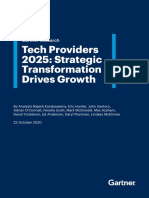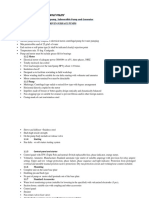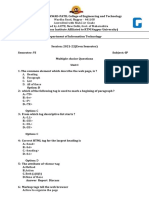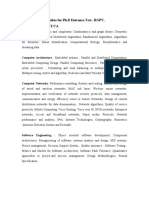0% found this document useful (0 votes)
13 views8 pagesThe AI Revolution Shaping Our Future
The document discusses the transformative impact of Artificial Intelligence (AI) across various industries, highlighting its history, core technologies, and ethical considerations. It outlines the evolution of AI from narrow applications to the potential of superintelligence, while emphasizing the importance of responsible development and addressing challenges like bias and privacy. The conclusion calls for prioritizing ethical principles and investing in education to ensure AI benefits humanity.
Uploaded by
daxiyob409Copyright
© © All Rights Reserved
We take content rights seriously. If you suspect this is your content, claim it here.
Available Formats
Download as PPTX, PDF, TXT or read online on Scribd
0% found this document useful (0 votes)
13 views8 pagesThe AI Revolution Shaping Our Future
The document discusses the transformative impact of Artificial Intelligence (AI) across various industries, highlighting its history, core technologies, and ethical considerations. It outlines the evolution of AI from narrow applications to the potential of superintelligence, while emphasizing the importance of responsible development and addressing challenges like bias and privacy. The conclusion calls for prioritizing ethical principles and investing in education to ensure AI benefits humanity.
Uploaded by
daxiyob409Copyright
© © All Rights Reserved
We take content rights seriously. If you suspect this is your content, claim it here.
Available Formats
Download as PPTX, PDF, TXT or read online on Scribd
/ 8



















































































































